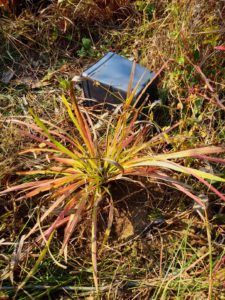State Game Area Highlight: Petersburg SGA
Located less than twenty minutes from the Ohio border and hardly an hour from the heart of Detroit, the 616-acre Petersburg State Game Area in Monroe County is a favorite location of many outdoor enthusiasts in Southeast Michigan.
Known for quality small game and upland game bird hunting opportunities, this state game area is also home to portions of the globally rare oak openings ecosystem that is found only in Michigan and Ohio. This area has received an abundance of attention in recent years as conservation and natural resource organizations work together to conserve and restore this ecosystem for native insect, wildlife, and plant species.
The Nature Conservancy, the Michigan Department of Natural Resources, Pheasants Forever, Michigan United Conservation Clubs, private landowners in the region, and others have all contributed to these habitat restoration and improvement efforts. Through partnerships and independent efforts, invasive species have been removed, native plants have been planted, and entire sections of the state game area have been restored to grassland and wetland ecosystems.
Such habitat improvement efforts not only benefit game species but also many rare birds and insects that rely on unique ecosystems like those found at the Petersburg State Game Area. Such species include but are not limited to Karner blue butterflies, blazing star borer moths, and lark sparrows.

A freshly-planted blazing star spp. at the Petersburg SGA in October of 2020.
Michigan United Conservation Clubs’ On the Ground program (OTG) has been partnering with The Nature Conservancy since October of 2020 to engage local volunteers in restoration efforts at the state game area. Between two partnership events in 2020 and 2021, 30 volunteers joined The Nature Conservancy and OTG in the planting of approximately 1,300 blazing star plants throughout four openings within the state game area.
The species of blazing star planted include dense blazing star ( Liatris spicata ) and rough blazing star ( Liatris aspera ), which are hosts to the state imperiled blazing star borer moth. These efforts, spearheaded by The Nature Conservancy, were made possible through funding they were awarded from the U.S. Fish and Wildlife Service, Great Lakes Fish and Wildlife Restoration Act.
- To learn more about the rare oak openings region, please visit the Green Ribbon Initiate website HERE .
- To learn more about the Peterburg State Game Area, please visit the MNFI document HERE or the DNR map HERE .
- To read the MUCC blogs associated with the events described above, please visit the 2020 blog HERE and the 2021 blog HERE .
The post State Game Area Highlight: Petersburg SGA appeared first on Michigan United Conservation Clubs.
Recent Posts



